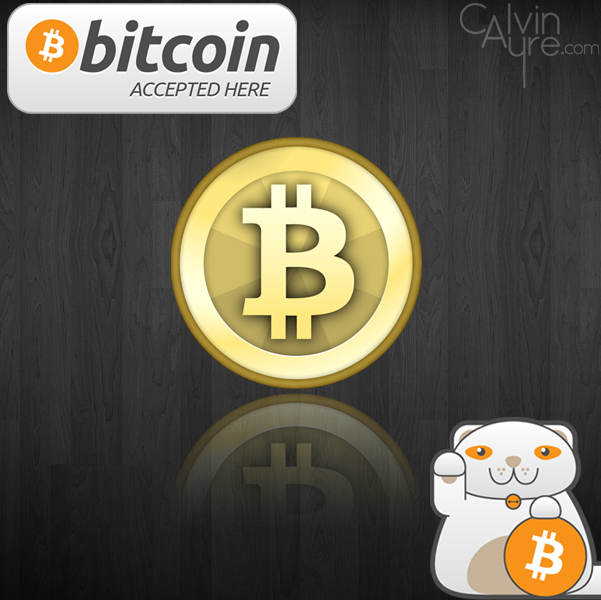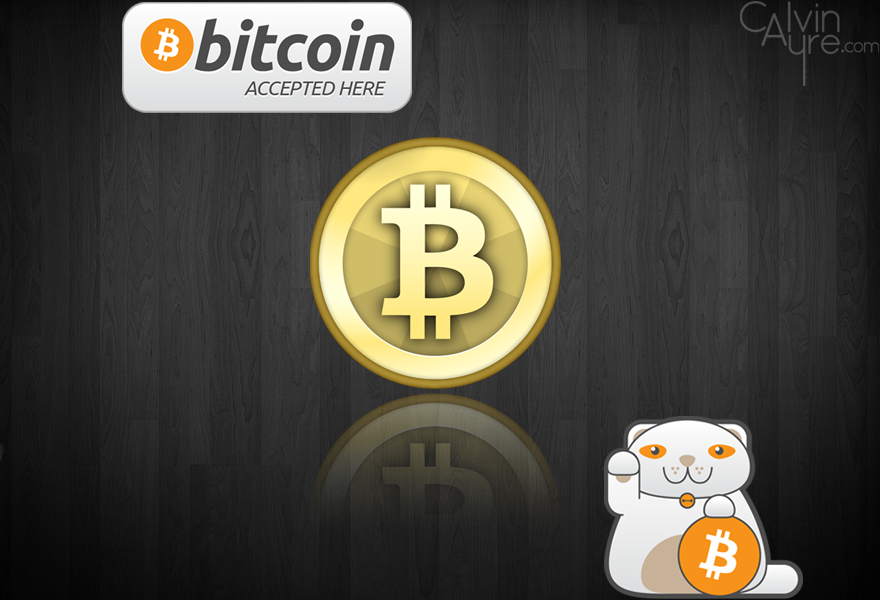I’ve spent the better part of the last week learning about the digital cryptocurrency, Bitcoin, and the economy that’s built up around it. In just under four years it’s gone from a little-known Internet experiment to a functioning, worldwide alternate currency. It’s gone through a couple of boom-and-crash cycles since it was first introduced to the world by Satoshi Nakamoto on January 3, 2009. And it’s drawn excitement from some smart tech-oriented types, disapproving looks from central banks, and tens of thousands of words from outlets like The New Yorker and Rolling Stone. In other words, it might just be the most interesting thing on the internet. (Even more than cat videos, or Ayre Heads.)
Practical Bitcoinomics
 When I first read about how Bitcoins are created in batches (once 50, now 25, and soon less than that) by users “mining” them, I thought to myself, “Self, that sounds like the kind of thing you could get in on!” Turns out that I arrived a little late to the party. The difficulty of mining Bitcoins has spawned a highly competitive mini-industry of mining pools whose members run dedicated rigs with high-powered graphics cards and split the coins they earn among themselves. It’s not unheard of for someone to spend a few thousand dollars building a machine and then lose more on the cost of electricity to run the computer than they make off of mining. (I read one report – quite possibly apocryphal – that one Bitcoin miner was visited by officers of the law who thought his excessive use of electricity was the sign of a marijuana growing operation.) And since the reward for mining gets halved at regular intervals, the cost of some of those high-end components may soon become too prohibitive for most miners to continue in the trade.
When I first read about how Bitcoins are created in batches (once 50, now 25, and soon less than that) by users “mining” them, I thought to myself, “Self, that sounds like the kind of thing you could get in on!” Turns out that I arrived a little late to the party. The difficulty of mining Bitcoins has spawned a highly competitive mini-industry of mining pools whose members run dedicated rigs with high-powered graphics cards and split the coins they earn among themselves. It’s not unheard of for someone to spend a few thousand dollars building a machine and then lose more on the cost of electricity to run the computer than they make off of mining. (I read one report – quite possibly apocryphal – that one Bitcoin miner was visited by officers of the law who thought his excessive use of electricity was the sign of a marijuana growing operation.) And since the reward for mining gets halved at regular intervals, the cost of some of those high-end components may soon become too prohibitive for most miners to continue in the trade.
I use relatively low-powered Macs in my house, so the mining thing is clearly not for me. But my initial reading told me that were such things as “Bitcoin faucets,” sites set up with accounts that dripped out rewards once a day to people just for visiting them. Turns out I was a little late for that, too; most of the faucets have run dry as of November 2012, and those that do drip do so in tinier amounts than they used to. There are a load of interconnected sites that will give you minuscule amounts for visiting advertiser sites, watching videos on YouTube, or answering surveys, but the payouts are so small as to not be worth it. Then there are marketplaces where you can offer services to other Bitcoin users for whatever price you set. The going rate for writers isn’t quite up to snuff since there aren’t a lot of content publishers paying in Bitcoins at the moment; it would take a long time and a lot of time invested for a very small reward.
So in the end, I did what I’d do in the “real world” and found an exchange that would take my U.S. dollars and turn them into Bitcoins – for a fee, of course. I purchased my first Bitcoin for just under $11. (Just like with any other gamble – and given its short history of price fluctuations, Bitcoin is still a gamble – I’m not willing to bet more than I can afford to lose.) What did I do with it, you might be asking yourself? I immediately found a place to play poker with it, of course. (I’ll have more to tell you about that at some later date.) I’m sure I’ll find some other use for my little stash of digital currency down the road, especially if I can win a bit from other users, but for now I’m sticking to familiar turf.
An experiment against the status quo
Beyond just providing another outlet for me to pass the time with extremely low-stakes poker, I find Bitcoin interesting for a number of reasons. It’s fascinating to me how such a radical idea – decentralized currency, seemingly lifted straight from the work of science fiction author Neal Stephenson – has taken hold so quickly here in the real world. You can buy gold and silver with Bitcoins; you can buy domains and hosting services with Bitcoin; you can even donate to some political candidates with Bitcoin. There’s no real chance of Bitcoin taking the place of the US dollar anytime soon, but it’s growing as an alternative for some people and that’s exciting as any challenge to the status quo is when the status quo becomes dysfunctional.
Staying in the orbit of the online poker business for the last seven years has afforded me a look behind the curtain at how banks are becoming more and more intertwined with the U.S. Government. The UIGEA essentially deputized the banks – against their will, if their testimony during hearings to codify new regulations before the Act went into effect is a fair indicator – to spy on their customers for the feds. U.S. government use of the banks for its own means isn’t new, but its uses under UIGEA and other, wider-ranging legislation like the Patriot Act have certainly been novel in their approach to turning bank customers into suspects. As long as you’re participating in the mainstream financial system, there is essentially no such thing anymore as privacy in banking. Bitcoin promises privacy comparable to dealing in cash, only with a large potential upside if the cryptocurrency can gain a foothold in the coming years.
It also presents a threat to the arbitrary authority of central banks, who can print money any time they feel like it. Since Bitcoin does have an upper limit to its circulation totals – 21 million, which on the current track will be reached sometime next decade – it represents nascent but real competition to the fiat currency system of the central banks. They’ve just begun to pay attention, too, even if they tend to dismiss it; the European Central Bank and Federal Reserve have both taken a look at Bitcoin recently, the former in a full report titled Virtual Currency Schemes that compared Bitcoins with the Linden Dollars you can earn and spend online in the Second Life virtual universe.
I tend to think that anything small that’s so easily dismissed by large entities with power to preserve is probably worth paying attention to, especially given the current worldwide march toward centralization of power in the hands of states. Given that Bitcoin touches on so many facets of so many issues related to privacy and economic freedom, I imagine I’ll be paying attention to it for the foreseeable future.






